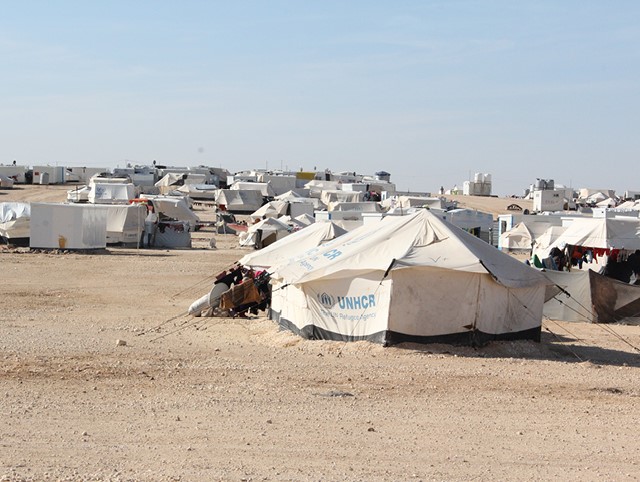A Different Kind of Camping Part III: An Average Day as an EMT in Zaatari

On my first day as an EMT in Zaatari, the Syrian refugee camp in Jordan where I was volunteering, I had a quick meeting with the physician I would work under for the next few months. He informed me that I would be expected to work quickly. Shortly after we met I saw my first patient, Alaa, an infant whose skull was embedded with shrapnel. Together, Dr. Jo and I removed shards from her tiny head for an hour. Not five minutes later, we saw our next patient, and then about 200 more in the course of a 12-hour day. 
Hapless Victims
If I could pick any word to describe the medical situation in Zaatari, it would be “need.” So many of my patients (mostly men, women, and children who fled the war) were third-degree burn victims who were caught in gas explosions that left their skin charred, sometimes to the bone. I performed a medical procedure called debridement that rid their bodies of dead and dying skin (it takes months to grow new skin). I had heard that this process is one of the most painful procedures a patient can endure, and judging by their screams, this is undeniably true. These patients were inspiring, and I dedicated myself to helping them heal, with hopefully as little pain as possible (though it was never, ever painless).
We had no shortage of medical emergencies, and I was pushed to apply my clinical knowledge more in my first week in Jordan than I had in three years as an EMT. In addition to the horrendous injuries, the vast majority of the Syrian population is affected by chronic diseases – heart disease, diabetes – the same health problems many Americans face.
Getting By with Very Little
The clinic I worked for was severely underfunded, and because of that, patients died from what are completely preventable diseases. To further complicate matters, refugees who enter Zaatari from northern Syria have walked more than 300 miles to reach the camps and have gone for months without their medications. As a result, several suffered from “emergency flare-ups” after neglecting their chronic illnesses all this time. 
Health care services are lacking as well. There are barely enough resources to address physical ailments, let alone mental disorders such as PTSD. Though patients don’t always show the physical signs and symptoms that surface as a result of escaping war, it’s clear that many are suffering from mental trauma, especially children. The number of children who are even scared of the doctors is heartbreaking. I remember one instance when I tripped on a metal chair, knocking it and myself over. The loud clamor caused a 14-year-old patient to cry and cower in a corner, and refuse to let me examine her.
A Bleak Situation
The number of Syrian refugees who cannot legally access proper health care is now more than 70,000. If registered Syrians can’t even get care, the situation for the undocumented is completely dismal. Left to their own devices, they don’t have food, water, or shelter and are dying from infectious diseases like pneumonia. AVSI’s (Association of Volunteers in International Service) mobile diagnostic clinics were created to address these needs, though we learned quickly that mobilizing them would be more difficult than we ever imagined.

In Part IV, I will discuss the difficulties my NGO had setting up mobile diagnostic clinics and how we finally got them up and running.
 The Daily Dose
The Daily Dose
Comments are closed.